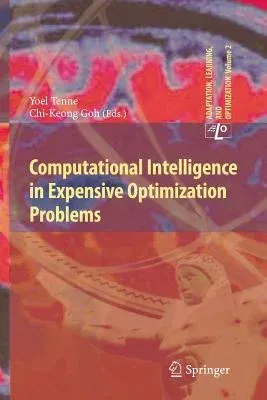In modern science and engineering, laboratory experiments are replaced
by high fidelity and computationally expensive simulations. Using such
simulations reduces costs and shortens development times but introduces
new challenges to design optimization process. Examples of such
challenges include limited computational resource for simulation runs,
complicated response surface of the simulation inputs-outputs, and etc.
Under such difficulties, classical optimization and analysis methods may
perform poorly. This motivates the application of computational
intelligence methods such as evolutionary algorithms, neural networks
and fuzzy logic, which often perform well in such settings. This is the
first book to introduce the emerging field of computational intelligence
in expensive optimization problems. Topics covered include: dedicated
implementations of evolutionary algorithms, neural networks and fuzzy
logic. reduction of expensive evaluations (modelling, variable-fidelity,
fitness inheritance), frameworks for optimization (model management,
complexity control, model selection), parallelization of algorithms
(implementation issues on clusters, grids, parallel machines),
incorporation of expert systems and human-system interface, single and
multiobjective algorithms, data mining and statistical analysis,
analysis of real-world cases (such as multidisciplinary design
optimization).
The edited book provides both theoretical treatments and real-world
insights gained by experience, all contributed by leading researchers in
the respective fields. As such, it is a comprehensive reference for
researchers, practitioners, and advanced-level students interested in
both the theory and practice of using computational intelligence for
expensive optimization problems.

